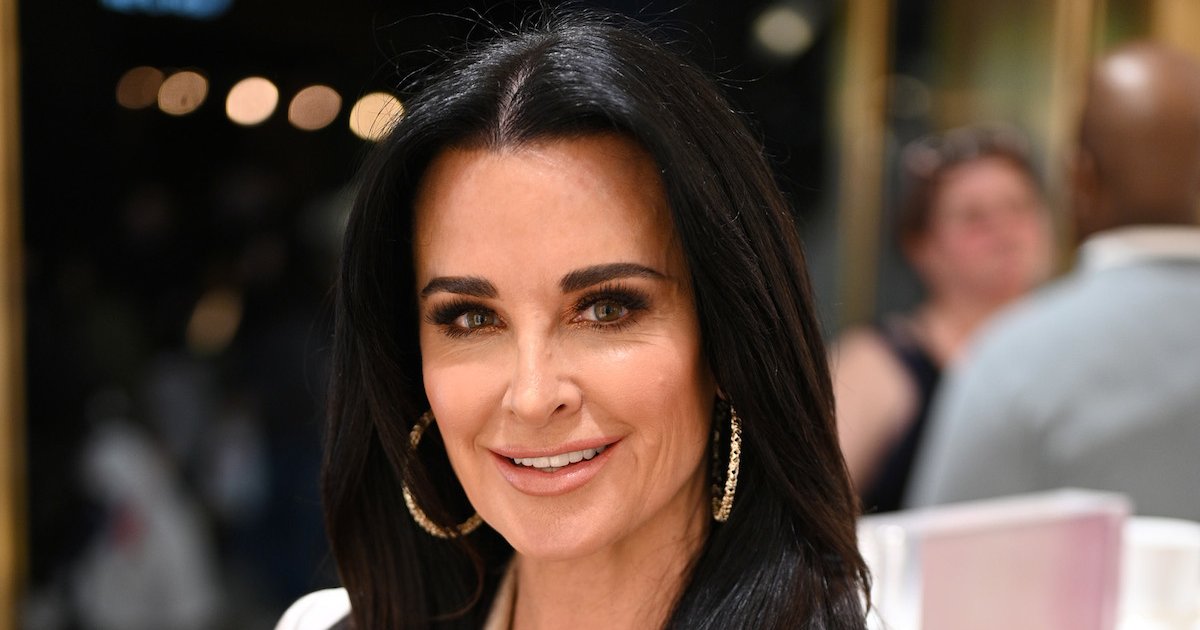Mammogram Anxiety
- Real Housewife Kyle Richards, 51, says both she and her mother experienced anxiety around mammograms.
- This anxiety caused Richards’ mother to skip her annual mammogram for five years; she passed away 18 years ago from breast cancer.
- Mammograms are proven to be the best tools in detecting breast cancer.
- Women who are called back after their mammograms shouldn’t jump to conclusions. According to an expert, the majority of women who have been called back do not have breast cancer.
The loss of her mother has made Richards a passionate advocate for breast cancer awareness and prevention. However, she admits it’s easy to experience anxiety around scheduling annual mammograms. This fear caused her mom to skip mammograms for five years, which is something Richards wants to prevent for other women.
Read MoreRichards herself says she’s also personally experienced anxiety around the annual screening. However, she’s been able to push past that fear in order to prioritize her health. Plus, being the mother of four girls, she wants to emphasize how important this tool is for women who have breast cancer among their family.
“In my family we’re three sisters and between us we have 12 kids and nine of them are female so it’s something that’s really important for me to talk about and remind not only my daughters but my nieces, my sisters, and every woman out there to get their mammogram and do their self exams,” Richards says. “I used to get anxiety [about mammograms] after losing my mom, but I’m better now.”
Mammograms Save Lives
Self-exams can be a good way for women to get to know their breasts, and check daily whether something feels off. However, mammograms are still the best tools in detecting breast cancer and catching it early. Although it can be an uncomfortable experience for some women, the process itself only takes a few minutes and the long-term benefits can outweigh the slight discomfort.
Generally, current guidelines recommend women start scheduling annual mammograms starting at 45-years-old, and continue until they’re 54. After that, women can either choose to continue scheduling mammograms every year or choose to have them every two years. However, for women who are considered “high-risk,” it’s suggested they start screening earlier.
Related: When You're Getting a Mammogram, Ask About Dense Breasts
The “high risk” category refer to women who have had a first-degree relative (mother) diagnosed with breast cancer, hold the BRCA1 or BRCA2 gene mutation, or have had radiation on their chest in the past. For those who fit into this category it’s recommended mammograms are scheduled starting at 30-years-old.
Dr. Connie Lehman explains when women should start scheduling mammograms
Guidance to Ease Fear
Feeling scared about mammograms is understandable, especially since you might be hearing bad news. However, it’s well known that the earlier breast cancer is caught, the more successful treatment outcomes are. Plus, being called back after a mammogram doesn’t always necessarily automatically mean you have breast cancer.
“We understand the anxiety of that screening for breast cancer can cause and we understand the impact when a woman either gets that phone call or receives that letter saying we found something on your mammogram,” Dr. Connie Lehman, Chief of the Breast Imaging Division at Massachusetts General Hospital, tells SurvivorNet. “Overall if we think about it, when women go in for a screening mammogram, about 10% are going to be called back for more testing. The vast majority of that 10% of women call back do not have breast cancer.”
Oftentimes, women are called back just to take an ultrasound or a few more images to completely rule out breast cancer. Since a very small number of women actually are diagnosed with breast cancer, it’s important not to jump to the worst-case-scenario. “Let’s imagine that we have 1,000 women that are being screened with mammography, we’re going to call 100 back for more test,” Dr. Lehman explains. “Out of those 100, 80% are absolutely fine.”
Dr. Connie Lehman says women called back after a mammogram shouldn’t jump to conclusions
Learn more about SurvivorNet's rigorous medical review process.


